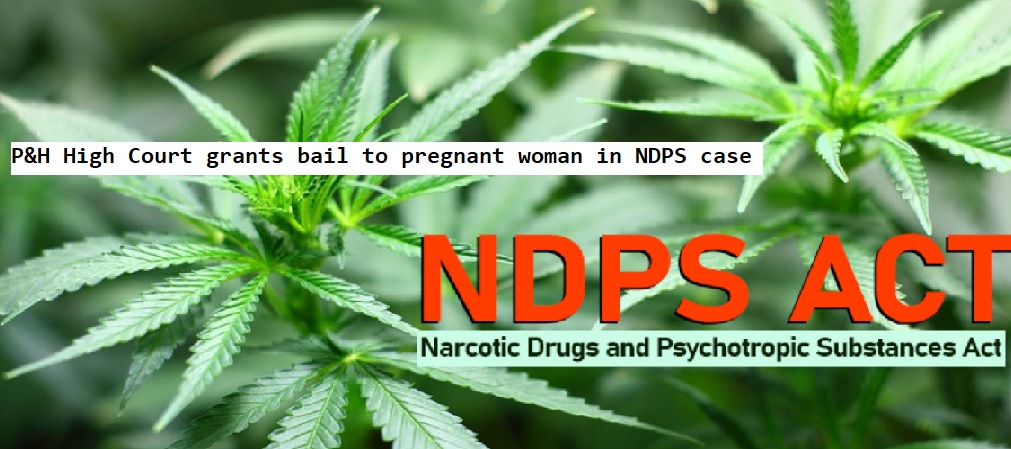


The Punjab & Haryana High Court has recently extended bail to a woman facing charges under the Narcotic Drugs and Psychotropic Substances (NDPS) Act. The petitioner, who is in the advanced stages of pregnancy, secured bail as the court acknowledged the significant impact of giving birth while in custody on both the mother and the unborn child. Justice Deepak Gupta emphasized the traumatic nature of such an experience, asserting that it could adversely affect the child's psyche when questioned about their birth.
Despite the serious allegations of the petitioner being found in possession of a substantial amount of contraband falling into the commercial category, the court deemed the pregnancy a special circumstance. Justice Gupta emphasized that, for the time being, the gravity of the offense should be set aside, recognizing the fundamental rights enshrined under Article 21 of the Constitution, guaranteeing life and liberty.
The court underscored the need to ensure the dignity of a pregnant woman, emphasizing the fundamental right to life and liberty. Justice Gupta reiterated that delivering a child while in custody could have lasting repercussions, both emotionally and psychologically. The court also considered the interest of the child, highlighting the potential harm of exposing a child to a prison environment unless there is a grave danger that justifies denying bail.
The case before the court involved a second bail petition under Section 439 of the Criminal Procedure Code (CrPC), related to Section 15 of the NDPS Act. The petitioner and a co-accused were allegedly found in possession of 55 kg of poppy husk and drug money amounting to Rs. 70,000. The petitioner's counsel argued that during the previous bail application, the petitioner was unaware of her pregnancy, and the petition was subsequently withdrawn. The counsel further informed the court about the petitioner's advanced stage of pregnancy.
Considering these submissions, the court expressed its opinion that, despite the serious nature of the allegations, the unique circumstance of the petitioner's pregnancy warranted special consideration. It recognized that while Section 37 of the NDPS Act restricts bail in cases involving possession of contraband of a commercial nature, this limitation should not serve as a blanket ban on the court's power to grant bail on humanitarian grounds.
Justice Gupta, while acknowledging the restrictions imposed by Section 37, maintained that when considering bail on humanitarian grounds, the court has the authority to deviate from the strict application of the statute. Emphasizing the need for proper medical care during the petitioner's delivery, the court granted interim bail for a period of six months from the date of her actual release.
In summary, the Punjab & Haryana High Court's decision reflects a delicate balance between the seriousness of the alleged offense and the unique circumstances surrounding the petitioner's pregnancy. The court, guided by principles of humanity and constitutional rights, opted to grant interim bail, prioritizing the well-being of both the mother and the unborn child.
TAGS: Humanitarian grounds Interim bail Judicial discretion Legal considerations Maternal and child well-being